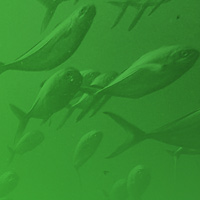-
Grants
16
-
Total Awarded
$3,977,000
-
Years
1991 - 2016
-
Categories
Grants
The Environmental Law Institute (ELI) is a mid-size international organization that builds the capacity of judges and the legal establishment to understand, implement, and manage complex issues of environmental law and sustainable development. This grant strengthens institutional capacity for judicial decision-making and enforcement to conserve biodiversity in the tropical Andes by training judges to effectively interpret and enforce applicable international and domestic environmental law. ELI and its partners, Fundepublico in Colombia and the International Center for Environmental and Territorial Research (CIIAT) in Ecuador, are training the national judiciary in each country and lower courts in key watersheds using a “train the trainers” model to transfer program leadership from ELI to its in-country partners.
Environmental Law Institute (ELI) uses innovative research, practical analysis, and targeted technical assistance and training to inform and strengthen policy-makers, business leaders, and environmental advocates worldwide. This grant supports translation of outputs that emerged from an earlier grant to adapt law and governance systems and structures to the climate problem into Vietnamese, French, and Spanish.
To strengthen post-conflict peace building through natural resource management.
To build the capacity of judges to protect biodiversity in Jamaica, Haiti, and the Dominican Republic (over three years).
To build the capacity of judges to protect biodiversity in Jamaica, Haiti, and the Dominican Republic (over three years).
In support of adapting law and governance to climate change (over three years).
In support of adapting law and governance to climate change (over three years).
To develop judicial education programs on biodiversity conservation in Hispaniola and Jamaica (over three years).
To support capacity building and the strengthening of legal frameworks for biodiversity conservation in the Albertine Rift Hotspot (over three years).
To advance the use of environmental law for biodiversity conservation in Africa (over three years).
To advance the use of environmental law for biodiversity conservation in Africa (over three years).
To support the Inter-American Program, which provides legal assistance and training to Latin American environmental organizations (over two years).
To support an environmental law training program in Latin America.
To support national case studies, in collaboration with several organizations in North and South America, on legislation regulating trade in genetic resources (over two years).
To support environmental-law and policy-reform initiatives in Latin America and the Caribbean (over three years).
To support the Inter-American Environmental Policy Center.




